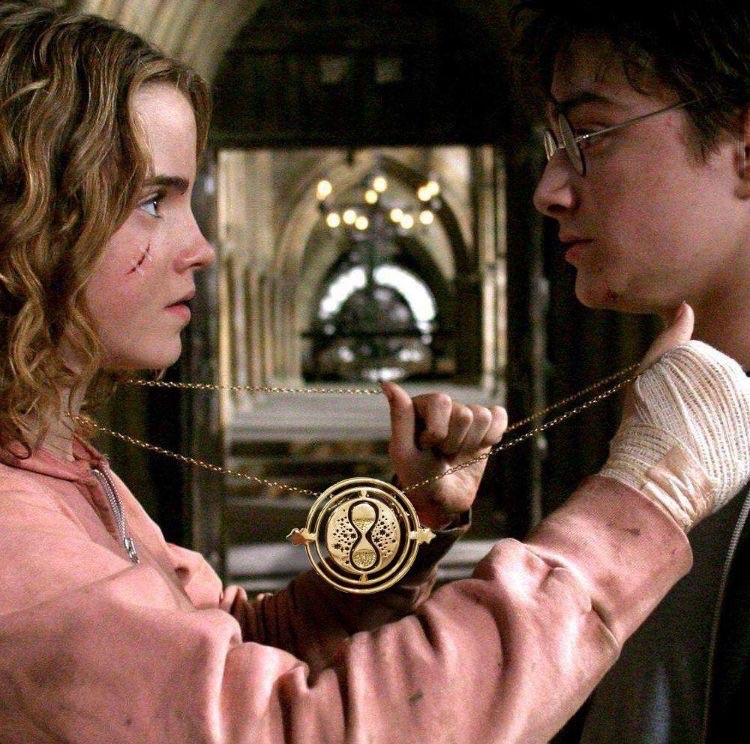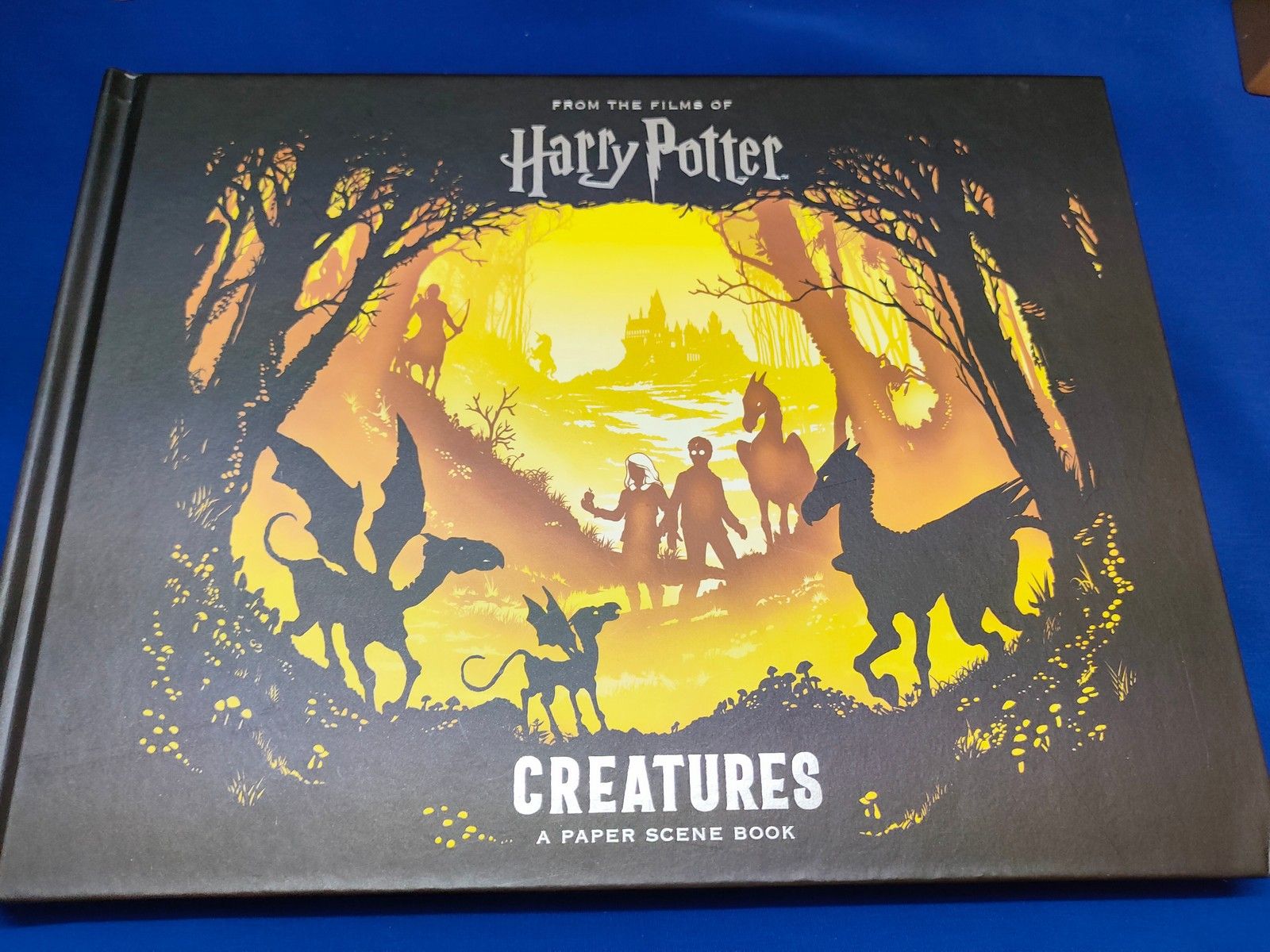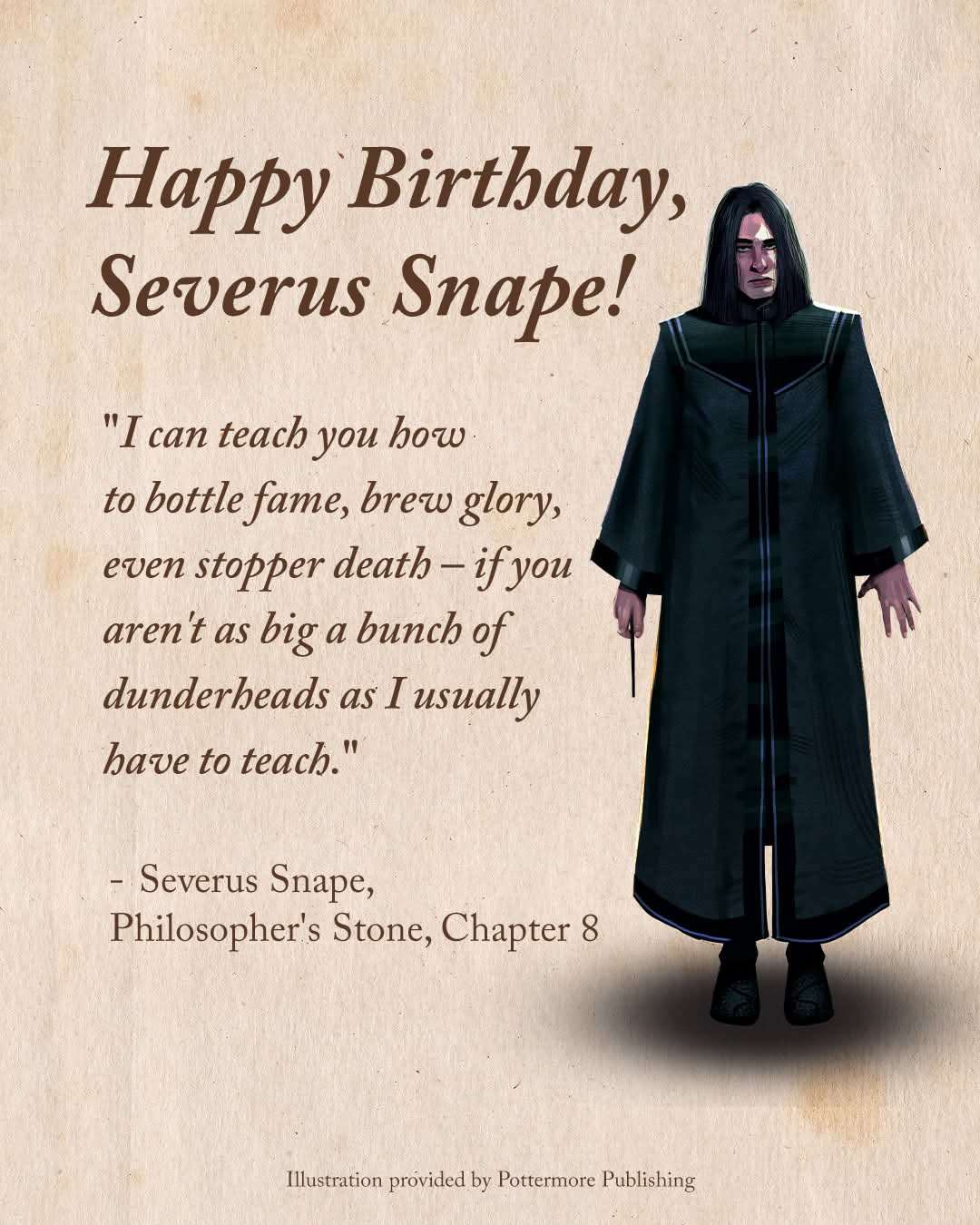不知道大家有沒有買《被詛咒的孩子》的最終收藏版劇本書呢?(感謝跳羊提醒名稱XD)
目前這個版本的劇本只有平裝的原文版,中文版的話是預演版的劇本書才有
我之前有發一篇文是在做中英文預演版劇本書的比較
有興趣的人可以點這裡的港口鑰觀看
最終收藏版劇本在書的最前面加了一些導演與編劇的對話
我下午開箱後,晚上就先立刻翻譯了
只想看翻譯的人可以直接手動滑到最下面哦!
*照片都有稍微調色,所以多少會有點色差哦!
好的~總之我7/26下午就收到後就立刻開箱了
然後是的,對,你沒算錯
我目前有三個不同版本的劇本書哈哈哈哈哈...

不明所以的放上了三本書的合照以哀悼錢包
因為其實這個版本跟預演版的內容差別沒有非常大
所以大家不要期待有什麼驚人的地方XDDD
總之先放上此版劇本的封面及封底


再來就是預演版也有的演員、導演、編劇、監製、工作人員...等等的名單以及感謝的部份
名單有點長,所以我只拍有標題的那頁哦


再來就是我覺得最不一樣的地方了
最終收藏版的紙張顏色是灰色的,跟預演版的兩本書相比都是比較薄的
內文的字也都縮小囉
*此張照片未經調色

接下來放上的是,最終收藏版劇本才有收錄的波特家族譜及哈利波特系列的時間線
族譜的部份,除了衛思理一家也在上面之外,還有個小彩蛋
就是哈利的名字旁邊,有個小小的黑白剪影
仔細看的話就能看出上面的閃電形狀
時間線的部份則讓人覺得又看了一次哈利波特的七本小說
上面記錄了從哈利出生開始後,每一年發生的重大事件
最後面也直接寫了「19年後...」,金妮跟哈利送走孩子的場景
短短四面的時間線,卻讓人又回憶起了每本哈利波特的故事
而在時間線的最後,又像是將我們帶回此本書的一開始那般
如同劇本書中的時光器,它又一次的帶我們穿過了19年的旅程
如此記憶猶新,如此感慨過去
另外,時間線上面還小小的寫著當初哈利在車站鼓勵阿不思的那一段話
也算是彩蛋之一吧我想



重大要事的上面都會有個小圖案
重生石、隱形車、鹿頭、火杯、鳳凰、魔藥瓶、死聖標記....等等
超可愛,超像在玩手遊的TTT

那麼,接下來就是導演及編劇兩人的一些對話了
這部份也是只有最終收藏版才有的收錄
因為目前沒有中文版,所以剛剛就直接翻譯出來給大家看了
同時也附上原文在下方
《原文》
Jack:The first play I ever read was Joseph and the Amazing Technicolor Dreamcoat. I was at primary school and very excited. I can remem-ber clearly, but I think I'm mainly went through it looking for my lines. Yes, I was an obnoxious little brat and yes, I was going to play Joseph. The next place I read was The Silver Sword, a theater adaptation of the Ian Serraillier classic. I wasn't going to play the lead in that— I think I played "third boy" or something. I wanted to play Edek Balicki. I would have given anything to play Edek, sadly my acting career was in terminal decline by then. I was nine years old.
John:The first script I ever read was Oliver! aged nine (even at that young age I was vaguely aware that the exclamation mark meant it was a musical─it's Oliver... with songs!). I had been cast as the eponymous orphan in the Huddersfield Amateur Operatic Society's 1981 production. I have no memory of attempting to change my accent, so our production must have been a strange reimagining of Dickens's original in which Oliver's mother finds her way to a workhouse in West Yorkshire to give birth. Like you, I read through the script looking for my lines. I remember making a special trip to buy a fluorescent yellow pen so I could highlight Oliver's lines in my script, just like I'd noticed my fellow cast members do. Obviously, I thought, this was what marked you out as a seasoned performer. It was only later that the Artful Dodger pointed out that I not only had to highlight my lines, but also commit them to memory. And so began my lessons in read-ing plays.
Jack: I wish I'd seen your Oliver. And your highlighted script. I always admired your pristine brown directing notebooks. My scripts are—and always have been—dog-eared, covered in indecipher-able notes, and smeared with baby puke (okay, the puke is a rela-tively new addition).
So how do you think scripts should be read? How can they be read? When I was trying to write the stage directions for publication─in those final few weeks of scramble before we opened─I got really worried about all this. I remember in rehearsals we'd delete chunks of the script because the actors were communicat-ing something effortlessly with a look, so didn't need the lines I'd written. This script was created for a particular group of actors, but others need to inhabit the roles too. The reader needs to visu-alize the characters, as does the director. When you're reading a script for the first time, what are you looking for?
John: As a director, the first time you read a new script is very precious. It's the closest you're ever going to be to an audience watching a production of this script for the first time. Reading a finished script should allow us access to the story, its characters, and the themes the playwright is exploring. A script can make us laugh and cry. It can take us through the joy of its story and also make us feel deep despair for the suffering of its characters. A script builds towards a fully realized production and an experience that can be shared with the audience.
As a playwright, how much of this full experience do you imag-ine when you are writing a script? Do you speak the characters' lines out loud as you type them?
Jack: I do worse than that, I move like them. Which, when you're work-ing in well-known coffee shops and sandwich retailers, can lead to you attracting some strange looks. I find myself twisting into the character and gesticulating like them. It's all very embarrassing.
The thing that was perhaps most interesting about the process of writing this particular script is that I have never spent more time with actors ever. Through the weeks of workshops and then weeks of rehearsals we were all in those rooms together for so long, all of us, from the design team to the sound team to the lights. I don't think any of us have experienced anything like that—I think it probably works out at eight months or so, all in all. What effect would you say that had on what was created? I'm sure it made it all a lot better, but more than that do you think it somehow changed the tone of what we did?
John: I love the thought of you sitting in cafes mumbling and contort-ing yourself into characters from your plays! I think there's prob-ably an audience for this, Jack. It sounds like a very unique style of performance. We could tour it. I know the actors from Cursed Child and I would book front row seats. No? Well, okay then...
I definitely think that the significant amount of time we all spent together in workshops and rehearsals had a positive effect on what we created. The whole process still seems so vivid, dynamic, and clear. From the initial story meetings we had with Jo at the beginning of 2014 through to the audiences who first saw the production in summer 2016, there have been so many actors, creatives, artists, producers, production and technical teams who have contributed to this play. This is the main reason I was so keen to include all their names in the published script. It's also why the published script can only ever be a gateway to the full experience of watching the production in a theater. So, as the writer of this script, what do you hope happens inside the imaginations of people reading the play who haven't, as yet, been able to see the production?
Jack: I think that's a difficult question to answer. On the day before the play opened, I wrote a tweet which said "I'd love people to see it, it's better seen than read—plays are like sheet music, meant to be sung & we've a cast & crew of pure Beyoncé." So maybe that's the answer: that they imagine the Beyoncés of the acting world—emotional and empathetic titans—killing every line with their subtlety and grace (because that's the reality; our cast are extraordinary)—and staging and movement and costume and lighting and video and sound that are all just sublime.
Or maybe I just hope they're able to read it as I wrote it—with Jo on one shoulder and you, John, on the other—trying my best to express in every single line the emotional truth and honesty that runs through the Harry Potter books. The difficult thing of course is the subtext between the lines, the way that looks can carry emotion, and the impossibility of truly capturing internal monologue in a script. In prose you can write how someone feels, and in the production the cast reflect the internal monologue on their faces. Plus, there's loads of magic stuff onstage, which I can't explain because it'll ruin watching the show and get Jamie Harrison (Illusions and Magic) thrown out of the Magic Circle! Maybe they can act it themselves in their head? Maybe they can be as mad as me and sit in a café and play all the parts? How would you say people should read it?
John: As you say, in prose you can express the truth of how someone feels through internal monologue and give visual detail through rich description, whereas we have our actors and creative collab-orators who work with us to bring these elements to life on stage. Even then, we often rely on the audience's collective imagination to make a particular moment of storytelling come to full-blooded fruition. It's one of the reasons that I am so passionate about theater; film has computer-generated imagery but we have the imagination of the audience. Both are extremely powerful.
I think there's something wonderful about the idea of readers acting out the script in their heads. Or with their mates in their bedrooms. Maybe there's a connection between this and our live audience's imagination. We will work hard so that everyone who wants to see our production of Harry Potter and the Cursed Child is able to, whether at the Palace Theatre in London or in new productions elsewhere. In the meantime, I'm genuinely excited about the countless productions that are happening in our read-ers' imaginations as they absorb your play.
《翻譯》
傑克:我讀的第一本劇本是《約瑟與他的神奇彩衣》,當時就讀小學的我非常興奮。對,那時候我還是個乳臭未乾的小伙子,然後對,我當時就是要飾演約瑟的那個人。後來我讀了另一個劇本─《銀劍》,有個老師改編了Ian Serraillier的這部經典之作。我並沒有飾演裡面的主角,我想我飾演的是"第三個孩子"或其他什麼的。我想演Edek Balicki,我願意付出一切只為了能飾演他,可惜的是當時我的演藝生涯依舊隕落了,那年我九歲。
約翰:我九歲讀的第一本劇本是《孤雛淚》。(即便在那麼小的年紀,我還是依稀的知道那個驚嘆號代表的是音樂劇─孤雛淚,與那些歌曲!)我曾飾演與1981年赫道斯菲業餘歌劇協會大獎監製同名的一個孤兒角色。我對試圖改變我的口音這點完全沒有印象,所以我們的監製不得不以奇怪的方式去重塑Dickens的原著,也就是讓Oliver的母親在西約克郡濟貧,並且在那裡生產。跟你一樣,我也把我的腳本全都看了一遍。我還記得我為此有了一趟特別的旅行,只為了去買一支黃色的螢光筆,這樣我才能將我的台詞都畫下來,就像那些我注意到的演員們一樣。顯而易見的,我以為,就是這個東西能讓你成為一個經驗豐富的表演者。只是到了後來,Artful Dodger讓我知道了我不僅要將台詞畫下來,更要保證自己能將它們記在腦中。而這也開啟了我在閱讀劇本生涯的一個重要課程。
傑克:我希望我看過你的《孤雛淚》以及你畫過台詞的劇本。我總是羨慕你的那本原棕色導演筆記。我的腳本總是有折角覆蓋在一些無法辨讀的筆記上,還帶著一些嬰兒的嘔吐物。(好吧,那些嘔吐物是比較近期才加上的)
所以你覺得該怎麼去讀劇本?它們怎麼有辦法被閱讀?當我試圖為了這些要出版的劇本書寫舞台說明時─就在即將開演的前幾個星期─我真的非常擔心這一切。我還記得我們在排演時刪去了一大段的劇本,因為演員們彼此溝通了一些關於外觀上比較不費力的想法,所以不需要那些我寫好的部份。這個劇本是為了特定的演員組寫的,但其他演員們的角色也必須呈現在裡面。讀者們必須想像出那些角色,就像導演一樣。當你第一次閱讀一部劇本時,你尋求的是什麼?
約翰:作為一個導演,你第一次讀一部新劇本是非常珍貴的。那是你第一次最能以觀眾的角度去看這部劇本的時候。閱讀一部已完成的劇本應該能讓我們了解這個故事、它的角色以及編劇正在探索的主題。一個劇本能使我們歡笑、哭泣。它能讓我們透過它的故事而感受到那些喜悅,也能使我們因為角色的痛苦而感到深深的絕望。一個劇本建構了一個完全實際呈現的演出以及一個能與觀眾們分享的經驗。
作為一個編劇,當你在寫劇本的時候,你能想像最後能收穫這麼多的經驗嗎?當你在寫劇本時,你會將角色的台詞大聲的說出來嗎?
傑克:我做得比那個還糟,我的舉止都像他們。也就是說,當你在一個知名的咖啡店工作時,能引來一些奇怪的目光。我發現我自己已經完全進入角色了,我連一些小手勢都像他們。真的非常的尷尬。
在寫這部獨特的劇本時,最有趣的或許是我從來沒有多花這麼多的時間在演員們身上。經過幾個星期的研討會及幾個星期的排演,我們一起在那些工作室裡待了那麼長的時間,我們所有人,從設計團隊到音效團隊到燈光師們。我不覺得我們有人曾經有過任何類似的經驗─總而言之,我想我們大概花了八個多月左右的時間。你覺得改變後的內容有什麼影響?我相信它讓整體變得更好了,但不只如此,你會覺得它不知怎麼的改變了我們原來的基調嗎?
約翰:我喜歡你坐在咖啡廳苦著臉碎念自己進入角色的樣子!我想那裡或許就有個觀眾愛這個呢,傑克。那聽起來像是個非常獨特的表演風格。我們還能做個巡迴演出。我知道《被詛咒的孩子》有哪些演員,我可以預訂前排座位。不要?哦,那好吧...
我認為我們花了那麼多的時間在開會及排演上,對我們的創作而言,絕對有著正面的影響。整個過程看起來是如此的生動、有活力並且清晰。從2014年初我們和Jo對於故事雛形的那場會議開始,到2016年夏天首次觀賞了我們成果的觀眾們,已經有這麼多的演員、創作家、藝術家、監製、工作人員及技術團隊為這個舞台劇做出了貢獻。這就是我非常希望將他們所有人的名字都寫進公開劇本裡的主要原因。這也是為什麼只有公開劇本才能成為唯一一個途徑去觀看完整舞台劇製作的原因。所以,作為這部劇本的編劇,你希望那些目前還沒看過劇本的觀眾們,對這部劇本能有怎麼樣的想像?
傑克:我想這是個很難回答的問題。在開始演出的前一天,我發了一則推特「我會很開心人們來觀賞舞台劇,實際觀看比閱讀來得棒─舞台劇就像是本樂譜,生來就該歌唱,而我們有著一群演員,以及如同碧昂絲純淨歌聲一般的劇組人員。」所以也許那就是這個問題的回答:他們將這個舞台劇的世界想像得像是碧昂絲那般─令人動容並且引起共鳴的巨頭─巧妙而不失優雅的刪去每一行字(因為這是現實;我們的演員們都是特別的)─而登台、劇情的轉折、戲服、舞台燈光、現場攝影、音效控制都是令人讚嘆的。
又或者我只是希望他們能讀過我寫的劇本─跟Jo,還有你,約翰,我們齊心協力完成的─盡我最大的努力去完整表達每一段文字中真實的情緒,不過說真的,劇本內容貫穿了所有《哈利波特》的劇情。而這過程中最困難的,莫過於那些劇本中的潛台詞了,那種讀起來的方式能更帶有情感,困難的還有真正抓到劇本中角色獨白精髓的不可能性。在散文中,你可以寫出某人的感受,而在舞台劇本中,演員們會直接將那些內心獨白反映在他們的臉上。更何況,舞台上有還有這麼多奇幻的東西,我不能解釋,因為這會破壞觀眾觀看演出的體驗,並且讓Jamie Harrison(幻覺與魔術)被扔出魔術圈!或許他們能夠自己著手表演?或許他們可以像我一樣生氣的坐在咖啡廳然後表演所有戲份?你覺得讀者該怎麼讀這部劇本?
約翰:就如同你說的,在散文中,你可以透過獨白表達出某人真正的情緒,並透過豐富的描述來呈現視覺上的細節,反之,我們擁有我們的演員們及創意合作者能將這些元素帶上舞台。即便如此,我們經常依靠觀眾的集體想像力,讓故事中一些特定的劇情達到豐富的效果。這是我對劇院有著極大熱情的原因之一,電影可以有電腦合成的特效,但我們擁有觀眾們的想像力。兩者都非常的強大有力。
我覺得讀者們在腦中表現出劇本的內容有些奇妙。或著正跟他們的伴侶窩在臥室。或許讀者們的想像跟舞台劇現場觀眾們的想像有些聯繫也不一定。我們會努力的工作,讓所有想來看《哈利波特─被詛咒的孩子》的人都能得償所願,無論是在倫敦皇宮劇院或是於其他地區的演出都一樣。與此同時,我由衷的對那些不計其數發生在我們讀者腦中的想像感到興奮,得以想像他們是如此全神貫注的在你的劇本上。
《註解》
推特:編劇Jack當時在推特上發的文即是下面這則推文。

Jamie Harrison:一名室內魔術師,《被詛咒的孩子》舞台劇因為他的協助而呈現出一些魔法效果,其中也包括催狂魔的出現。(下圖)

好的,大致上就是這樣~
希望這篇文對還沒買劇本書的你,或是還沒收到貨的你能有一些幫助!
大家接下來除了一起等待霍格華茲圖書館的新書之外
也一起等待魔生返校跟仙境改版吧!
ok,好,昨天只睡三小時,現在已經早上六點了我還在這裡排版
不說了我要滾回床上睡覺了各位,我...開始想吐了orz
Anyway 我是冷冽!Love y'all!





